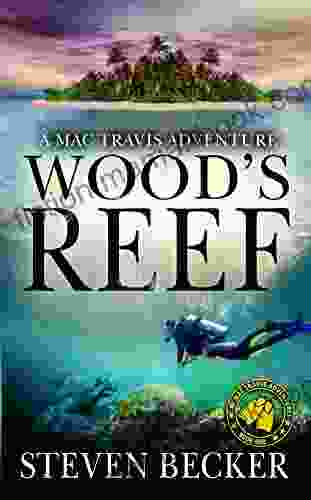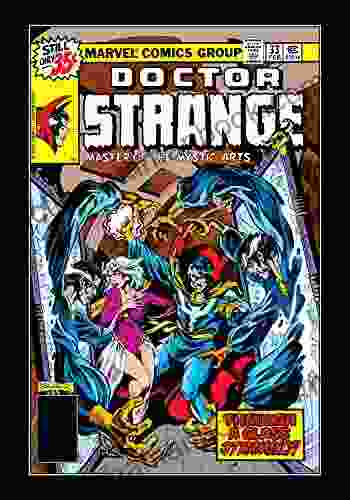Roosevelt, Lindbergh, and America's Fight Over World War II, 1939-1941: The Battle for Public Opinion

In the years leading up to World War II, the United States was deeply divided over whether or not to intervene in the conflict. President Franklin D. Roosevelt believed that the United States had a moral obligation to help the Allies defeat Nazi Germany, but many Americans, including famed aviator Charles Lindbergh, were opposed to intervention.
The debate over intervention reached its peak in the fall of 1941, after the Japanese attack on Pearl Harbor. In the aftermath of the attack, Roosevelt was able to convince Congress to declare war on Japan, but the debate over intervention continued. Lindbergh and other isolationists argued that the United States should focus on defending its own shores, not on fighting a war in Europe.
4.6 out of 5
| Language | : | English |
| File size | : | 7505 KB |
| Text-to-Speech | : | Enabled |
| Enhanced typesetting | : | Enabled |
| Word Wise | : | Enabled |
| Print length | : | 716 pages |
| Screen Reader | : | Supported |
The debate over intervention was a complex one, with strong arguments on both sides. Roosevelt believed that the United States had a moral obligation to help the Allies defeat Nazi Germany, but Lindbergh and other isolationists argued that the United States should focus on defending its own shores. The debate was ultimately resolved by the Japanese attack on Pearl Harbor, which led the United States to declare war on Japan and enter World War II.
Roosevelt's Case for Intervention
Roosevelt believed that the United States had a moral obligation to help the Allies defeat Nazi Germany. He argued that Nazi Germany was a threat to the world and that the United States could not stand idly by while the Nazis conquered Europe. Roosevelt also believed that the United States had a strategic interest in defeating Nazi Germany. He believed that if Germany won the war, it would become the dominant power in Europe and would threaten the security of the United States.
Roosevelt's case for intervention was based on both moral and strategic grounds. He believed that the United States had a moral obligation to help the Allies defeat Nazi Germany and that the United States had a strategic interest in defeating Nazi Germany.
Lindbergh's Case for Isolationism
Lindbergh and other isolationists argued that the United States should focus on defending its own shores, not on fighting a war in Europe. They argued that the United States was not directly threatened by Nazi Germany and that the United States should not risk its own security by intervening in the war. Lindbergh also argued that the United States should not get involved in a war that was not in its own interests.
Lindbergh's case for isolationism was based on the belief that the United States was not directly threatened by Nazi Germany and that the United States should not risk its own security by intervening in the war.
The Debate Over Intervention
The debate over intervention was a complex one, with strong arguments on both sides. Roosevelt believed that the United States had a moral obligation to help the Allies defeat Nazi Germany, but Lindbergh and other isolationists argued that the United States should focus on defending its own shores. The debate was ultimately resolved by the Japanese attack on Pearl Harbor, which led the United States to declare war on Japan and enter World War II.
The debate over intervention in World War II was a defining moment in American history. The debate pitted two visions of America's role in the world against each other: one that saw America as a moral leader with a responsibility to help those in need, and one that saw America as a self-interested nation that should focus on its own security. The debate was ultimately resolved by the Japanese attack on Pearl Harbor, but the legacy of the debate continues to shape American foreign policy today.
4.6 out of 5
| Language | : | English |
| File size | : | 7505 KB |
| Text-to-Speech | : | Enabled |
| Enhanced typesetting | : | Enabled |
| Word Wise | : | Enabled |
| Print length | : | 716 pages |
| Screen Reader | : | Supported |
Do you want to contribute by writing guest posts on this blog?
Please contact us and send us a resume of previous articles that you have written.
 Top Book
Top Book Novel
Novel Fiction
Fiction Nonfiction
Nonfiction Literature
Literature Paperback
Paperback Hardcover
Hardcover E-book
E-book Audiobook
Audiobook Bestseller
Bestseller Classic
Classic Mystery
Mystery Thriller
Thriller Romance
Romance Fantasy
Fantasy Science Fiction
Science Fiction Biography
Biography Memoir
Memoir Autobiography
Autobiography Poetry
Poetry Drama
Drama Historical Fiction
Historical Fiction Self-help
Self-help Young Adult
Young Adult Childrens Books
Childrens Books Graphic Novel
Graphic Novel Anthology
Anthology Series
Series Encyclopedia
Encyclopedia Reference
Reference Guidebook
Guidebook Textbook
Textbook Workbook
Workbook Journal
Journal Diary
Diary Manuscript
Manuscript Folio
Folio Pulp Fiction
Pulp Fiction Short Stories
Short Stories Fairy Tales
Fairy Tales Fables
Fables Mythology
Mythology Philosophy
Philosophy Religion
Religion Spirituality
Spirituality Essays
Essays Critique
Critique Commentary
Commentary Glossary
Glossary Bibliography
Bibliography Index
Index Table of Contents
Table of Contents Preface
Preface Introduction
Introduction Foreword
Foreword Afterword
Afterword Appendices
Appendices Annotations
Annotations Footnotes
Footnotes Epilogue
Epilogue Prologue
Prologue Pearson Education
Pearson Education Laura Bellmont
Laura Bellmont Carolyn Meyer
Carolyn Meyer Kathryn H Jacobsen
Kathryn H Jacobsen Daniel Coyle
Daniel Coyle Laura Ann
Laura Ann Jean M Auel
Jean M Auel Maria T Codina Leik
Maria T Codina Leik Jeffrey Zoul
Jeffrey Zoul Cass R Sunstein
Cass R Sunstein Cheryl Douglas
Cheryl Douglas Lm Preston
Lm Preston Scott Turow
Scott Turow Chris Lynch
Chris Lynch Jean Martin Fortier
Jean Martin Fortier Elizabeth Coffey
Elizabeth Coffey William Kerrigan
William Kerrigan Carlos Eton
Carlos Eton Thomas Sewell
Thomas Sewell Sofi Laporte
Sofi Laporte
Light bulbAdvertise smarter! Our strategic ad space ensures maximum exposure. Reserve your spot today!
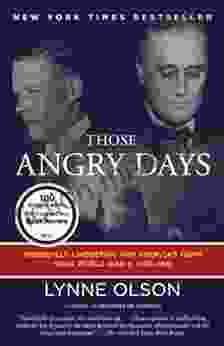
 Dawson ReedRoosevelt, Lindbergh, and America's Fight Over World War II, 1939-1941: The...
Dawson ReedRoosevelt, Lindbergh, and America's Fight Over World War II, 1939-1941: The... W.H. AudenFollow ·2.9k
W.H. AudenFollow ·2.9k Junot DíazFollow ·3.7k
Junot DíazFollow ·3.7k John GrishamFollow ·4.2k
John GrishamFollow ·4.2k Gavin MitchellFollow ·5.5k
Gavin MitchellFollow ·5.5k Ira CoxFollow ·4.1k
Ira CoxFollow ·4.1k Vladimir NabokovFollow ·8.2k
Vladimir NabokovFollow ·8.2k Jerry HayesFollow ·14.5k
Jerry HayesFollow ·14.5k Nathaniel HawthorneFollow ·10.9k
Nathaniel HawthorneFollow ·10.9k
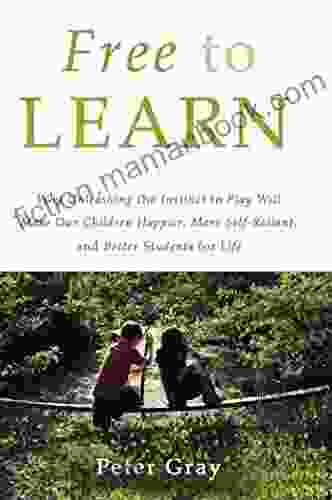
 Abe Mitchell
Abe MitchellWhy Unleashing the Instinct to Play Will Make Our...
Play is an essential part of childhood. It is...
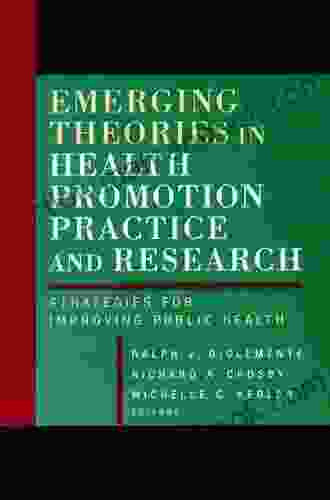
 Rubén Darío
Rubén DaríoTheory in Health Promotion Research and Practice
Theory is essential...

 Howard Blair
Howard BlairFailing Students or Failing Schools: Uncovering the Root...
In the United States, the issue of failing...

 Ira Cox
Ira CoxPoetry From the Heart Chope: A Symphony of Soul and Verse
Embark on a literary...

 Easton Powell
Easton PowellThe Witch Hunt: Wicked Witches of Shadow Woods
In the cursed woods of...
4.6 out of 5
| Language | : | English |
| File size | : | 7505 KB |
| Text-to-Speech | : | Enabled |
| Enhanced typesetting | : | Enabled |
| Word Wise | : | Enabled |
| Print length | : | 716 pages |
| Screen Reader | : | Supported |






